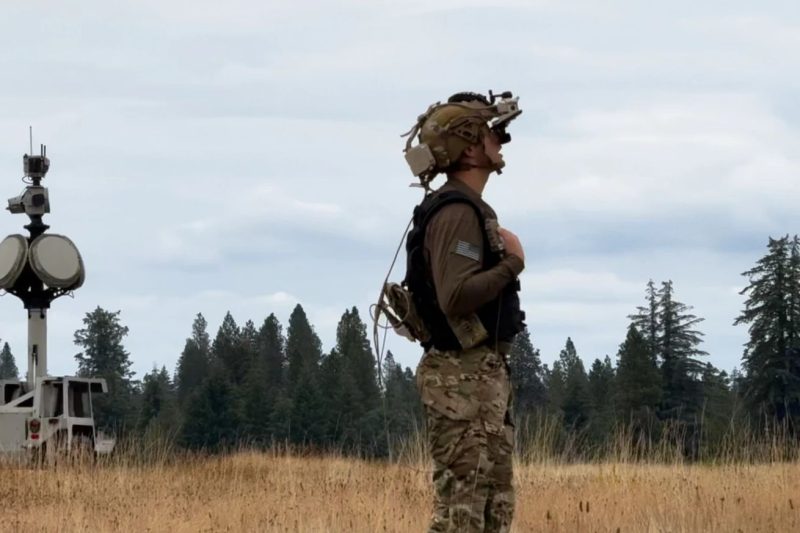Palmer Luckey Partners With Microsoft to Revolutionize Military Training
In a groundbreaking collaboration that promises to redefine military training, Palmer Luckey, the founder of Oculus VR and Anduril Industries, has joined forces with technology giant Microsoft. Together, they are on a mission to transform ordinary soldiers into highly-skilled operatives akin to the futuristic warriors depicted in the iconic Starship Troopers movie.
This ambitious project aims to leverage cutting-edge virtual reality (VR) technology to create immersive training simulations that will push the boundaries of traditional military instruction. By combining Luckey’s expertise in VR development with Microsoft’s vast resources and infrastructure, the partnership is set to deliver a game-changing training program that promises to revolutionize how soldiers are prepared for combat scenarios.
Luckey, known for his innovative approach to technology and his pioneering work in the field of VR, brings a unique perspective to the collaboration. His previous ventures have demonstrated a deep understanding of the potential of immersive technologies to enhance training, entertainment, and communication. With Anduril Industries focused on developing advanced defense systems, Luckey’s experience aligns perfectly with the goals of the partnership with Microsoft.
By integrating VR simulations into military training programs, Luckey and Microsoft aim to create a more dynamic and realistic learning environment for soldiers. These cutting-edge simulations will allow trainees to experience a wide range of combat scenarios, from urban warfare to strategic operations, in a safe and controlled setting. By immersing soldiers in these hyper-realistic simulations, the training program will better prepare them for the challenges they may face in actual combat situations.
Moreover, the use of VR technology in military training has the potential to save resources and reduce risks associated with traditional training methods. By conducting simulations in virtual environments, soldiers can practice complex maneuvers, engage in tactical decision-making, and hone their skills without the need for expensive equipment or live-fire exercises. This not only streamlines the training process but also minimizes the potential for accidents and injuries during instruction.
Beyond its immediate practical applications, the collaboration between Palmer Luckey and Microsoft holds promise for broader implications in the field of defense technology. By pushing the boundaries of VR development in the military sector, the partnership could pave the way for new innovations in training, simulation, and operational readiness. As the project progresses, it may open up new avenues for exploring the intersection of technology and defense, driving further advancements in how modern armed forces prepare for conflict.
In conclusion, the partnership between Palmer Luckey and Microsoft represents a transformative moment in the evolution of military training. By harnessing the power of VR technology, the collaboration seeks to equip soldiers with the skills and experience needed to excel in complex and demanding environments. As the project unfolds, it will undoubtedly shape the future of military training and redefine the capabilities of armed forces around the world. With Luckey’s visionary leadership and Microsoft’s technological prowess, this partnership has the potential to usher in a new era of innovation in defense training and readiness.

